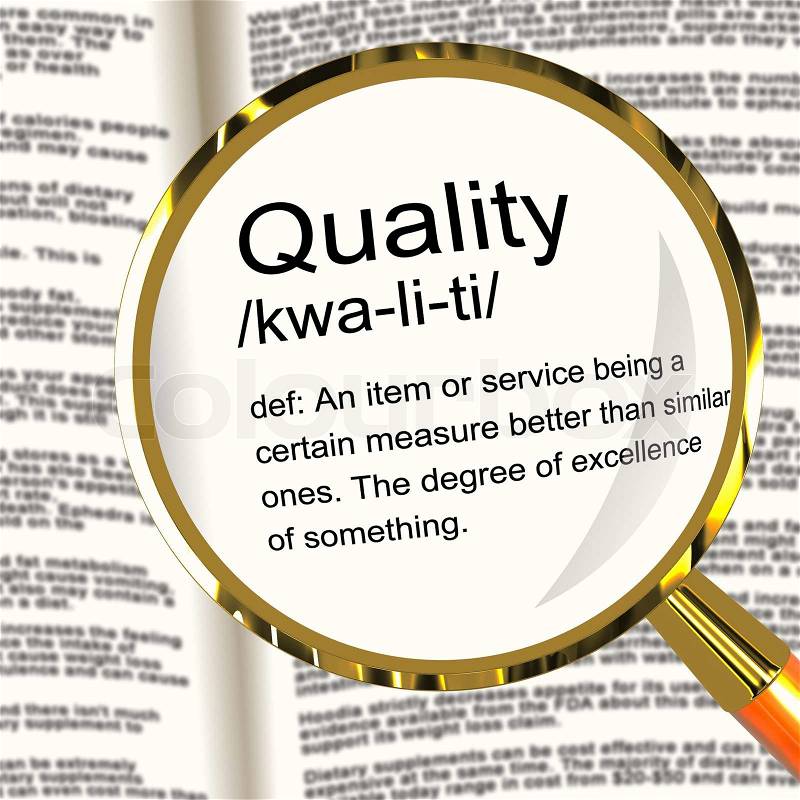Over the years, there have periods when the quality community, too, debated the need for a definition of quality. Generally the vote goes like this: Half says quality cannot have a single declarative definition, and the other half says until we have single declarative definition we can’t do anything meaningful to advance quality because we don’t know what it is. If pressed at a cocktail party to define quality, I use the definition from an old National Quality Month poster: “Quality, the systemic pursuit of excellence.” But then I immediately think of a hundred applications of quality that are not illuminated by that simple definition.
When ASQ conducted the 2011 Future of Quality Study (PDF), I instructed the panel that, for purposes of the study, quality was defined by whatever the panelist thought it to be. This drew an immediate and strong reaction from a professor at a significant university who said that you cannot do research without a definition of what it is you are researching. And when I explained my quandary in selecting one declarative definition, he said it didn’t matter what definition I chose. Any would lead to better research than none. And I was left wondering.
So, during the study, I asked the panel to provide the definition they followed when interacting with the rest of the panel. And, as I expected, they provided a significant collection of definitions, all good, depending on what part of quality you were illuminating. Some panelists used a consumer perspective, some used a producer perspective. Some held definitions specific to the product or service, and others took a larger view of quality – say, quality of the enterprise. And there was, of course, a philosophic view of quality, too. See pages 38 and 39.
What do you use as the best, most inclusive, and illuminating definition of quality? Test your definition against a variety of questions. Does your definition cover the difference between cassette tapes and CDs? Does it cover an explanation between a low-cost vehicle and a luxury vehicle? Could you use your definition in explaining quality to the CEO of your company? Does your definition embrace what benefit quality brings to humanity if fully realized?
If someone has a single declarative definition, it would be a real service to the quality community. A few years back, ASQ’s then-president Roberto Saco tried his hand at a definition. His filled a page. It can also be found in the Future of Quality study, page 40.
Such a definition is not an easy task. I’ve tried. However, it’s a worthy task especially when we’re starting a fresh new year with hope and optimism. If the 21st century is to be the century of quality, we only have 87 years left. We best hurry, there’s much to do.

No comments:
Post a Comment